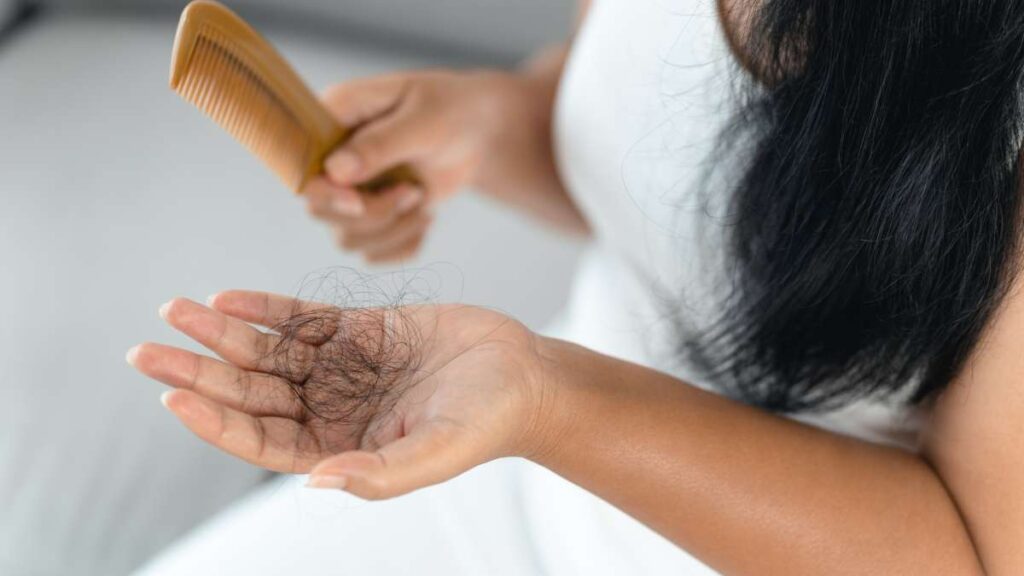
Hair fall is a common concern affecting people of all ages, and for many, it can lead to frustration and a loss of confidence. But there’s a specialized expert who can address this problem: a trichologist. Trichologists are experts in hair and scalp health, trained to diagnose the root causes of hair issues and provide effective, non-surgical solutions. Here’s a look at how a trichologist can help you tackle hair fall and promote healthier hair growth.
1. Understanding Hair Fall: Common Causes
Before addressing hair fall, it’s essential to understand its causes. Hair fall can result from a variety of factors, including:
- Genetics: Hereditary hair loss is a primary cause, often seen in patterns of thinning or baldness.
- Hormonal Imbalance: Conditions like PCOS, thyroid issues, or pregnancy-related changes can lead to significant hair loss.
- Nutritional Deficiencies: A lack of vitamins and minerals, such as iron, biotin, and zinc, can weaken hair.
- Stress and Lifestyle: Chronic stress, smoking, and inadequate sleep contribute to hair loss.
- Scalp Health: Scalp conditions like dandruff, seborrheic dermatitis, or fungal infections can interfere with hair growth.
Trichologists are skilled at identifying these and other underlying issues, which allows them to provide targeted and effective treatments.
2. How a Trichologist Can Help
A trichologist’s expertise lies in their holistic approach to hair and scalp health. Here’s how they work to resolve hair fall concerns:
- Comprehensive Diagnosis: Trichologists use specialized tools to analyze your hair and scalp under magnification. This detailed analysis helps identify issues like inflammation, thinning, or blocked follicles that may be contributing to hair loss.
- Personalized Treatment Plans: Based on your diagnosis, a trichologist develops a treatment plan tailored to your unique needs. This plan may include dietary recommendations, lifestyle changes, and the use of specific topical treatments.
- Non-Invasive Treatments: For those hesitant to opt for surgical interventions, trichologists offer non-surgical options like PRP (Platelet-Rich Plasma) therapy, low-level laser therapy, and scalp massage techniques to stimulate hair growth naturally.
3. Key Treatments Offered by Trichologists for Hair Fall
- PRP Therapy: A popular choice for hair growth, PRP involves using your blood’s platelets, which are rich in growth factors, to promote hair regeneration. This treatment strengthens the follicles, improves scalp health, and encourages new growth.
- Nutritional Support: A trichologist can recommend dietary adjustments and supplements tailored to strengthen hair from within. Nutrients like vitamin D, biotin, and omega-3 fatty acids are essential for hair health, and their deficiencies are often linked to hair loss.
- Topical Treatments: Trichologists may suggest plant-based serums, essential oils, and other natural products that promote healthy hair growth without harsh chemicals.
- Scalp Treatments: Keeping the scalp healthy is crucial for combating hair loss. A trichologist may recommend exfoliating treatments, antimicrobial oils, or hydrating masks to improve scalp health and create a better environment for hair growth.
4. Preventing Future Hair Fall: Lifestyle and Self-Care Tips
In addition to in-clinic treatments, trichologists can offer practical lifestyle tips to prevent hair fall:
- Stress Management: Chronic stress often disrupts hair growth cycles, leading to excessive shedding. Techniques such as meditation, exercise, and mindfulness can help reduce stress and its impact on hair.
- Proper Hair Care Routine: Using gentle, sulfate-free shampoos, avoiding excessive heat styling, and using a wide-tooth comb can reduce hair damage and loss.
- Balanced Diet: A diet rich in protein, fruits, vegetables, and healthy fats is essential for healthy hair. Trichologists may recommend incorporating specific foods that benefit hair, such as spinach, eggs, nuts, and salmon.
5. When to See a Trichologist
If you’re noticing more hair in your brush, on your pillow, or after showering, or if you see visible thinning or bald patches, it may be time to consult a trichologist. Here are some key signs:
- Persistent hair shedding that’s noticeable over several weeks or months
- A receding hairline or widening part
- Signs of scalp irritation, redness, or dandruff that don’t improve with over-the-counter treatments
Early intervention is crucial for effective treatment, and a trichologist can help guide you towards the right solution.
Final Thoughts: Regain Confidence with a Trichologist’s Expertise
Hair fall can be distressing, but a trichologist’s specialized knowledge provides effective and personalized solutions for both immediate and long-term results. Whether through advanced treatments like PRP or lifestyle modifications, a trichologist can help you manage hair fall and regain the confidence that comes with healthier, fuller hair.

